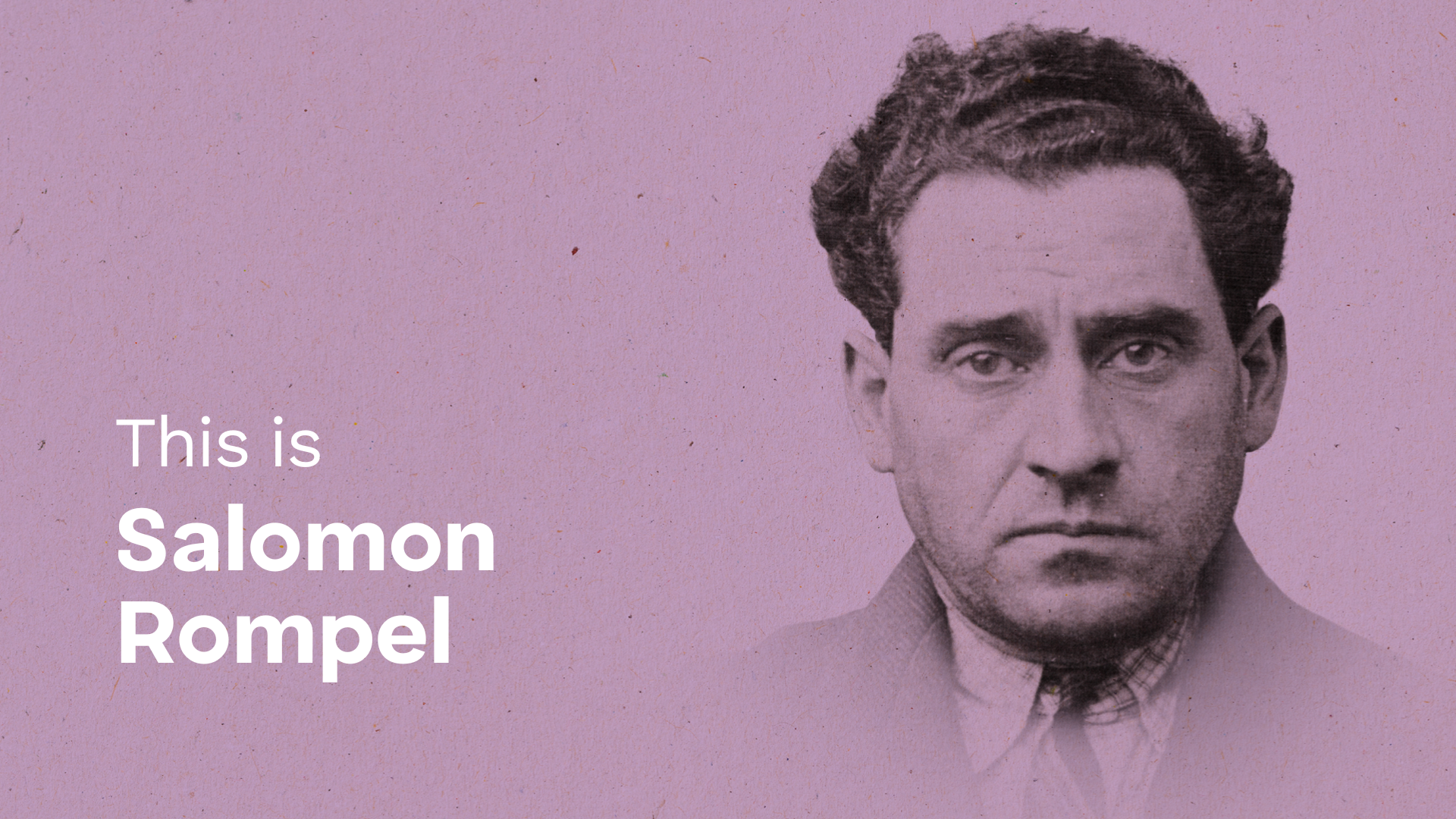
Salomon Rompel was born into a Jewish family on 1 August 1887 in Odessa, in the then Russian Empire. He married Dora Imas on 7 October 1940. The couple had two children, Fanny and Jacques. Fanny was born in 1905, just before the family moved to Paris, where their son Jacques came into the world in 1912.
According to German records Salomon was a “Schneider” by trade. A possible translation for this is tailor, but it is also possible that they were referring to the fabric store he ran. Salomon moved several times between 1912 and 1942. There are several accounts about where exactly he stayed during these years. In a statement to police he himself related that he had returned to Odessa in 1914, fleeing World War I. According to the same statement, he allegedly returned to Paris from Odessa in 1917 because he also had to flee the Russian Revolution there. The first entry in Belgian records dates from 1924 when his arrival in Belgium was registered by the Ostend police. Salomon indicated he would only stay in Belgium for a few months, following which he went back to France. In 1925 he was arrested in Paris for passport forgery and was sentenced to a month’s imprisonment. As a result of this, Salomon was given a deportation order in France, which is how he ended up back in Belgium in 1926. Together with his brother, Salomon opened a fabric store in Ghent. He had previously run a similar store in Paris. He was again arrested in 1927 and sentenced to 3 months in prison for fraud. At that time he was still married to his wife, who had remained in Paris with the children. There are conflicting sources concerning the status of his marriage: some claim that Salomon was divorced, while others still list Dora as his wife. Several incidents linking Salomon to fraud and forgery followed in subsequent years. This led to a series of arrests and stays in prison in Belgium. In 1934, after spending time in the Saint-Gilles prison in Brussels, Salomon was taken to the French border. Because a deportation order had previously been issued against him in France, he was not allowed to stay there. Belgian authorities then took him to the prison in Antwerp.
From there Salomon sent a letter to the Chief of General Security requesting to be allowed to remain in the city, although he had also been issued with a deportation order in Belgium. What happened next remains unclear. Presumably he travelled to Amsterdam after his release, but in 1935 he ended up in prison again, this time in Charleroi. Later that year he was released and put on a train to Verviers.
In April 1941 an official report was filed against Salomon Rompel, which is the last trace the Belgian police had of him. Presumably he then fled to France.
During the night of 11-12 September 1942 Salomon was arrested during a large scale raid in the French cities of Lille, Lens and Douai, during which the Nazis picked up a total of 513 people. Those arrested were gathered at the Lille-Fives railway station and then transferred to Kazerne Dossin where they were put on Transport X, headed for Auschwitz-Birkenau, where Salomon Rompel was killed.
25,843 stories.
Which story will you be connected with?
Register for Every name matters